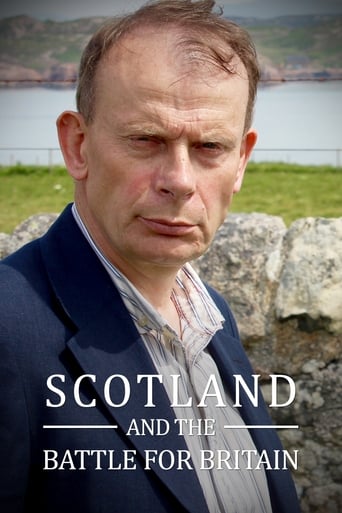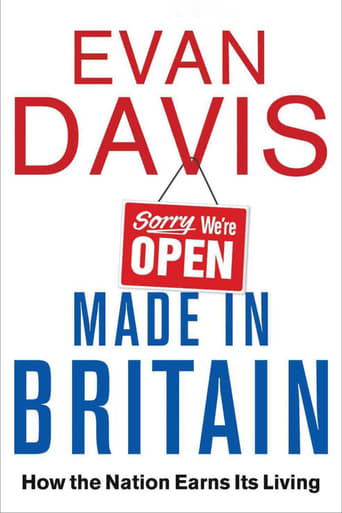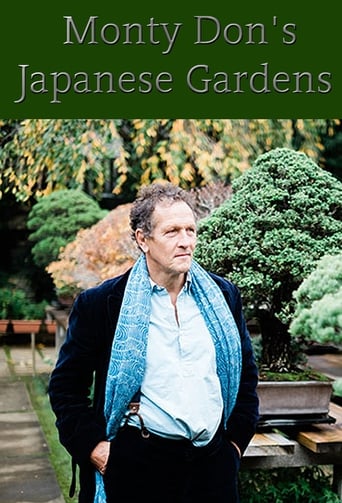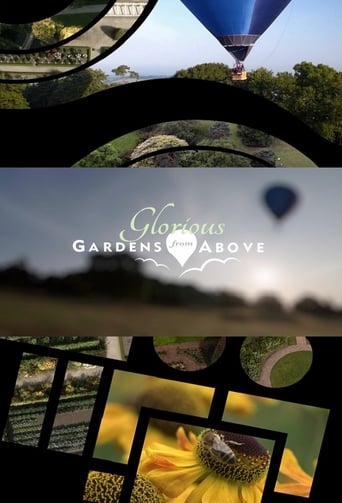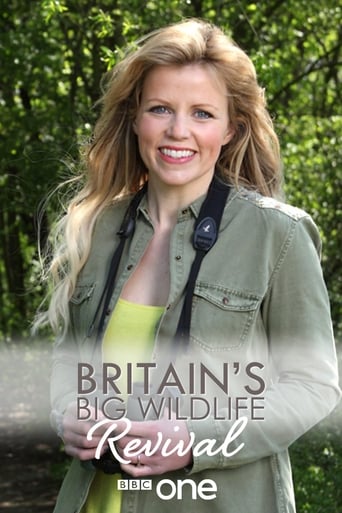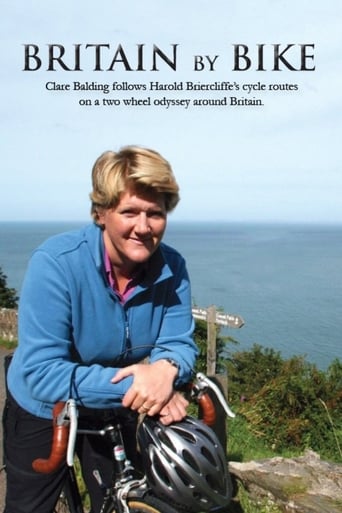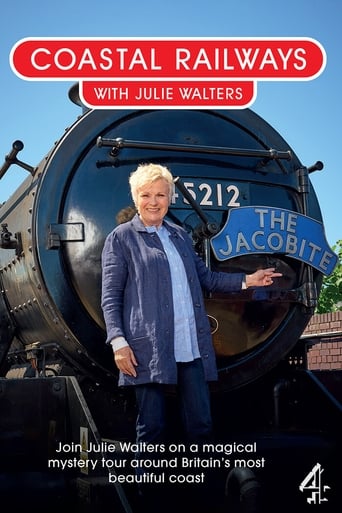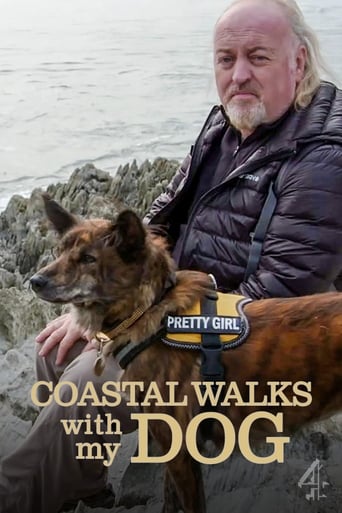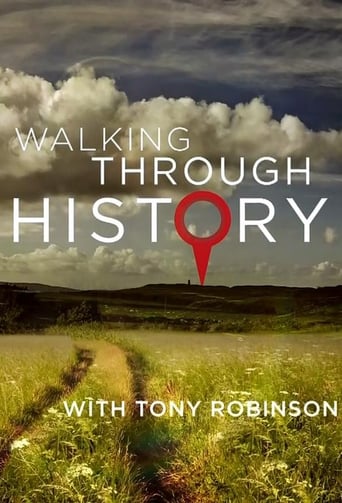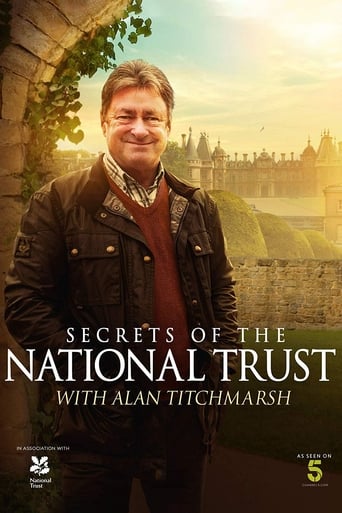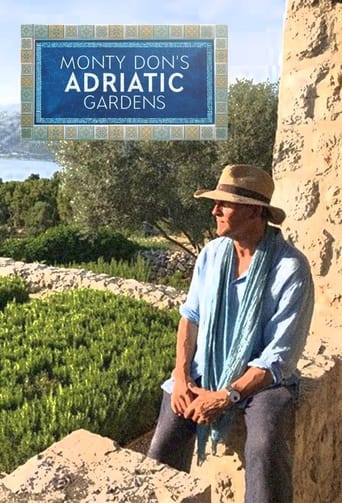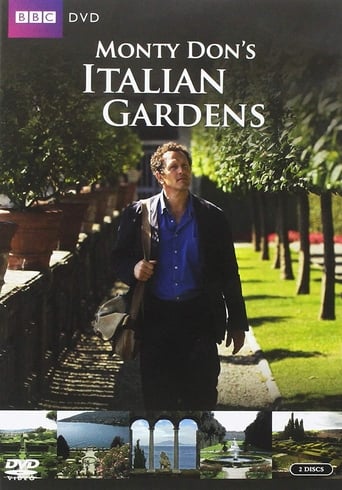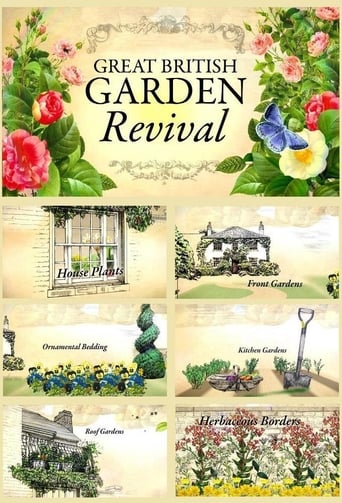
Great British Garden Revival (2013)
Britain’s rich horticultural history is being lost. More and more front and back gardens are paved over - for development, for parking spaces, or because families don’t have the time or inclination to manage these spaces. The trend for easy-to-maintain lawns, patios and paving has also led to a decline in traditional gardens full of flowers, plants and trees to the extent that some of our most iconic flora and fauna have all but disappeared. Step forward the BBC’s most-loved gardening experts, who are determined to turn us back into a green-fingered nation once again.
Country: GB
Language: En
Runtime: 60
Season 2:

Rachel de Thame shares her love of old roses. In her revival, she meets a nurseryman in Oxford involved in the restoration and conservation of old rose gardens, takes to the streets of Solihull with her pop-up rose garden and visits the most famous rose nursery in the UK. Joe Swift wants to dispel some of the myths which have grown up around climbers and creepers and shows us that, with the right selection and a little bit of maintenance, they will suit any style of garden. On his revival, he meets a university research team investigating the effects that climbing plants can have on our buildings, sizes up the longest wisteria in the country and finds out that climbing plants can also be productive on a visit to a cooperative vineyard in London.
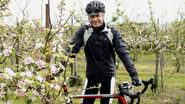
Carol Klein reveals that she is daft about daffodils. On her revival she uncovers the history of the UK daffodil industry on a visit to Cornwall's Tamar Valley, takes to the streets of Falmouth and paints the town yellow, and meets a specialist bulb merchant in Somerset. Chris Beardshaw is on the blossom campaign trail. On his revival he visits a man in the Scottish Borders who has restored a walled garden and created a living library of heritage fruit trees; takes to his bike on the blossom trail in Worcestershire; and meets a woman in Edinburgh who has been campaigning to save the flowering cherry trees on her street from the chop.

James Wong wants to revive a plant which has fallen deeply out of garden fashion - the rhododendron. On his revival he visits the Lost Gardens of Heligan to see species of rhododendron which have been saved from the edge of extinction; he meets a scientist who is bringing Victorian species back from the dead; and attempts to win over the people of Truro with dwarf varieties suitable for any garden. Christine Walkden wants to revive a garage forecourt favourite - the carnation. On her revival she visits a specialist nursery who have been growing carnations for over 100 years; she heads to Gravetye Manor, the former home of the esteemed botanist, gardener and champion of naturalistic planting - William Robinson; and hits the streets in an attempt to bring back a forgotten tradition, the gentleman's buttonhole.
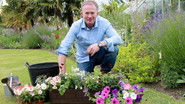
Toby Buckland wants to bring back scent to our gardens, visiting a scented garden at Kenilworth Castle which was originally created to win the heart of a queen. He holds the country's first ever scented flower competition and gets behind the science of scent when he meets a chemist and perfumer in the Cotswolds. Tom Hart Dyke wants to convince us all to grow tulips. He visits Spalding, which used to be the heart of tulip growing in the UK. He discovers the turbulent history of the broken tulip which four hundred years ago brought an economy to its knees, and lends a hand to one of Britain's last large-scale commercial tulip growers in Norfolk.

Diarmuid Gavin wants us to rekindle our love for lavender. On his revival he learns about its popularity and decline, when he visits what was once one of the major lavender growing regions in the UK. Alys Fowler wants to bring back an important part of our gardening heritage - the knot garden. On her revival she visits Hampton Court Palace to learn about one of the earliest knot gardens created, she helps out with a knot garden community restoration project in the Midlands and meets a man whose knot garden has turned into a real labour of love.
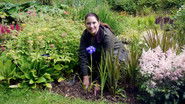
Rachel de Thame thinks that irises aren't getting the attention they deserve. On her revival she uncovers one woman's mission to save a unique collection of heritage irises and she gets creative with floral art using irises for inspiration. Toby Buckland reveals there is so much more to grass than meets the eye. On his revival he discovers the Victorians' passion for ornamental grasses with a visit to the Royal Botanic Gardens at Kew; he attempts to rebrand grasses to deal with their complicated, tongue-twisting Latin names, which often put gardeners off; and he meets a modern-day plant hunter who travels the world in search of unusual and exotic grasses.

Carol Klein flies the flag for conifers. On her revival, she visits the pinetum at RHS Garden Wisley to learn how we first became obsessed with conifers; she drops in on an old friend in the Peak District who has an extraordinary collection of dwarf conifers; and she tries to convince the people of Matlock about the joys of conifers by creating an amazing island installation in a local park. Throughout the show Carol shares here expertise and passion for these misunderstood plants. Tom Hart Dyke wants to give pelargoniums - often incorrectly called geraniums - back their rightful name. On his campaign he visits a garden centre in an attempt to re-educate the public about pelargoniums; he visits the biggest pelargonium collection in the world; and he spreads the word when he hits the campaign trail for his pelargonium referendum.
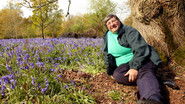
James Wong is convinced we should all be growing lilies in our gardens. He unearths the history of the lily, meets expert lily growers as they prepare for one of the country's biggest flower shows at Tatton Park and gets intimate with the insect associated with the decline of lily growing in the UK. Christine Walkden thinks woodland plants have been left in the shade in favour of sun loving, bigger, blousier flowers. She shows the people of Brentwood that the only way isn't Essex, as she converts them to the joys of bluebells.
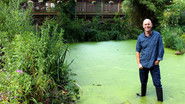
Joe Swift campaigns for the return of the bog garden. He visits a Victorian bog garden in Warwickshire which is well adapted to flooding, he reveals how fantastic bog gardens are for attracting wildlife and learns about the latest innovation in this style of gardening designed to deal with higher rainfall and reduce the risk of flooding - the rain garden. Alys Fowler believes that soft fruit are ripe for a revival. She uncovers the history of kitchen gardens and the importance of growing berries in the UK, she visits a nursery which specialises in rare and interesting soft fruit that can be grown easily at home, and she heads to the Kent County Show in search of some prize-winning berries.

Diarmuid Gavin wants our gardens to become havens for wildlife. He visits a RSPB nature reserve in Yorkshire to understand how important our gardens are to Britain's wildlife population. He meets a group of gardeners at one of the country's only chemical-free community wildlife allotments and encourages the people of Sheffield to grow wildflowers in their gardens to attract pollinators by giving them a taste for flower flavoured honey. Charlie Dimmock is determined to make the peony the star of our beds and borders again. On her revival she visits a nursery in Somerset - one of the oldest in the UK - which has been championing peonies for over 150 years and she sets up a pop-up peony stall in a Bristol market to spread the word about her campaign.

